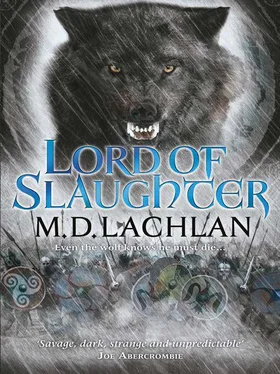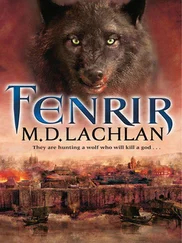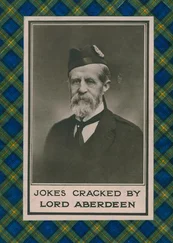M. Lachlan - Lord of Slaughter
Здесь есть возможность читать онлайн «M. Lachlan - Lord of Slaughter» весь текст электронной книги совершенно бесплатно (целиком полную версию без сокращений). В некоторых случаях можно слушать аудио, скачать через торрент в формате fb2 и присутствует краткое содержание. Жанр: Фэнтези, на английском языке. Описание произведения, (предисловие) а так же отзывы посетителей доступны на портале библиотеки ЛибКат.
- Название:Lord of Slaughter
- Автор:
- Жанр:
- Год:неизвестен
- ISBN:нет данных
- Рейтинг книги:4 / 5. Голосов: 1
-
Избранное:Добавить в избранное
- Отзывы:
-
Ваша оценка:
- 80
- 1
- 2
- 3
- 4
- 5
Lord of Slaughter: краткое содержание, описание и аннотация
Предлагаем к чтению аннотацию, описание, краткое содержание или предисловие (зависит от того, что написал сам автор книги «Lord of Slaughter»). Если вы не нашли необходимую информацию о книге — напишите в комментариях, мы постараемся отыскать её.
Lord of Slaughter — читать онлайн бесплатно полную книгу (весь текст) целиком
Ниже представлен текст книги, разбитый по страницам. Система сохранения места последней прочитанной страницы, позволяет с удобством читать онлайн бесплатно книгу «Lord of Slaughter», без необходимости каждый раз заново искать на чём Вы остановились. Поставьте закладку, и сможете в любой момент перейти на страницу, на которой закончили чтение.
Интервал:
Закладка:
Once through the forum, the magnificent hippodrome appeared — a massive building in pink cement supported by marble columns that stretched like a parade of trees out to the south-west. He had seen a chariot race there but it had all been too rough for him — the rival factions of Blues and Greens brawling on the terraces. He’d winkled his way out of the crush when a brute of a man behind him had pissed up the back of his trousers.
Past the hippodrome to the north-east shone the bright white walls of the palace and, beyond that, the most marvellous thing he had ever seen, the great dome of the mother church of Eastern Christendom, Hagia Sophia. He’d known God in that place among the ribbons of incense smoke that climbed from the gold of the altar through the sunbeams beneath the huge vault of the ceiling. The building was beyond mortal dreams, it was infused with God’s glory, its architects divinely inspired.
He walked on, following the Middle Way past the Numera. He never liked this part of the trip. The Numera was the city’s prison — built over one of Constantinople’s ancient cisterns. The most disturbing thing about it was its silence in the midst of such a busy city. Every other building in that area burst with noise, from the beggars and traders on the steps of Hagia Sophia to the clucking officials coming and going from the palace and the young men of the Magnaura laughing and fooling their way to their studies. Not so the Numera. Even the relatives of the prisoners, straining at the bars of its gates to offer food for the inmates and bribes to the guards, were cowed and subdued. The building itself was utterly quiet, its walls thick and the labyrinth of cells and tunnels, man-made or natural, that sprawled beneath it so deep that no sound of torment ever escaped.
The Numera was the plainest building on the road, a square block of unfaced brick in dirty yellow, like a stubby bad tooth in the mouth of a beautiful woman, thought Loys. At dawn it sat directly in the shadow of the great church, squatting silent in darkness as if the sun feared it. He guessed it would be getting a few more inmates with the emperor’s return.
He arrived at the steps of the Magnaura, its vast columned porch looming above him. He went up, nodding to the guard at the scholars’ gate, and passed through into the cloistered garden that led to the Senate House — which is what the school was still called, though the senators had long gone.
The scent of olive trees hit him. In the streets no tree would survive a moment — firewood and building materials being precious commodities. Here they stood in smart lines, their branches heavy with the green and purple fruit. He picked one and sucked off its flesh. ‘Agh!’ Bitter. He smiled to himself, wondering if they always tasted that way straight off the tree. He imagined Beatrice by his side, laughing and saying, ‘Well, there’s something you didn’t know, you with all your learning.’
Birdsong filled the air but it came from no natural birds. At the bottom of the line of olive trees was one of the wonders of the city — another olive tree, life-size and cast in bronze, with splendid birds in its branches, their glass feathers catching the light in spangles of colour. Their song piped high and sweet, backed by a sound like rain from the water that powered the machine. He would never get used to this, he thought. In some ways he considered it unholy and recalled the passage from the Bible: ‘Thou shalt not make unto thee any graven image, or any likeness of any thing that is in heaven above, or that is in the earth beneath, or that is in the water under the earth.’
God forbade such things. But could God begrudge man such beauty? Loys would have loved to have shown the singing tree to Beatrice, though that was impossible. No woman was allowed in the precincts of the university. He moved on.
The Senate House had an exterior of light yellow cement with three big arches of windows sitting beneath a dome. He still felt a thrill entering the exalted halls of the Magnaura. Today he had just a couple of teaching jobs — rhetoric and philosophy to the dense sons of some nobles. They weren’t inclined to learn much so he wasn’t inclined to teach much, and beyond giving them a few philosophers’ names to drop when questioned by their families, he spent his time with them talking of the many curiosities of the earth — the dragons of the east and the sand seas of Arabia.
Then he would take a class on law himself and — the highlight of his day — join the formal debate in the afternoon. That day he was speaking on the energies of God as separate from the essence of God — how we can know what God does but never what he is. Loys had also prepared a speech on the practice of hesychasm — a hermitage of the soul, withdrawing and stripping away all sensory perception until the eye of the soul awakens and an intuitive knowledge of God is developed. Loys was a theoretical rather than a practical student of this discipline.
He reached the door of the building and stepped inside to be met by the doorkeeper. He waved and went to walk through into the teaching cells but the man put up a hand to stop him.
‘Visitor for you.’
The doorkeeper’s face was pale.
‘Who?’
‘Go to the master’s rooms. He’s there.’
‘Who?’
The man said nothing, just scuttled into the little office behind his table. Loys went across the wide atrium, glancing down at the mosaic beneath his feet. Perseus slaying the Medusa, the snake-haired monster whose gaze turned men to stone. The way the doorman had acted you’d think there was one waiting for him in the master’s study.
He walked to the back of the building, passed the turn into the debating arena and went along a corridor to a single door on the left. He had been here only once before — when he gained admission by interview to the school. Well, actually an appearance before the faculty, at which he had to win through in a debate. It had not been easy — Rouen didn’t have that sort of competition — but he had done it. One debate on a subject of his choosing, one on theirs. Thank God they hadn’t picked the law.
He knocked on the door and a voice he didn’t recognise said, ‘Come.’ He thought it was a woman, but when he opened the door the master was on one of the guest chairs in his own room and behind the study table, in the master’s normal place, sat an exceptionally finely dressed and — no other word would do — beautiful man of around thirty. He shimmered in white silk and gold and, most tellingly, a bright purple sash worn left to right over his scarlet and brocade tunic. Only the emperor, his family and their very nearest associates had the right to wear that colour.
Behind him stood two enormous men, one clearly Greek by his short hair and beard, the other an African, his skin a deep black. Both had golden whips at their belts, along with a club and a sword. The whips, Loys knew, were for clearing a way through crowds for their master.
Loys instantly prostrated himself. He had no idea who this man was, but that sash, combined with the fact he’d turned the university’s master out of his own most comfortable seat, meant it was better to overdo the formalities rather than risk any appearance of arrogance.
‘Stand up, scholar, stand up.’ The sing-song voice was of an unusual timbre. The man had smooth skin like a woman’s, beardless; his limbs were long and his hands thin and graceful. His fingers bore three gold rings, one of which looked heavy enough to be an official seal. Certainly a eunuch, thought Loys.
He stood up.
‘Do you know me?’
‘No, sir, I do not.’
The man put his tongue into his lower lip in contemplation. Loys noticed the master had his eyes firmly on the eunuch, a static smile cut into his face like a scar into the skin of an orange.
Читать дальшеИнтервал:
Закладка:
Похожие книги на «Lord of Slaughter»
Представляем Вашему вниманию похожие книги на «Lord of Slaughter» списком для выбора. Мы отобрали схожую по названию и смыслу литературу в надежде предоставить читателям больше вариантов отыскать новые, интересные, ещё непрочитанные произведения.
Обсуждение, отзывы о книге «Lord of Slaughter» и просто собственные мнения читателей. Оставьте ваши комментарии, напишите, что Вы думаете о произведении, его смысле или главных героях. Укажите что конкретно понравилось, а что нет, и почему Вы так считаете.












